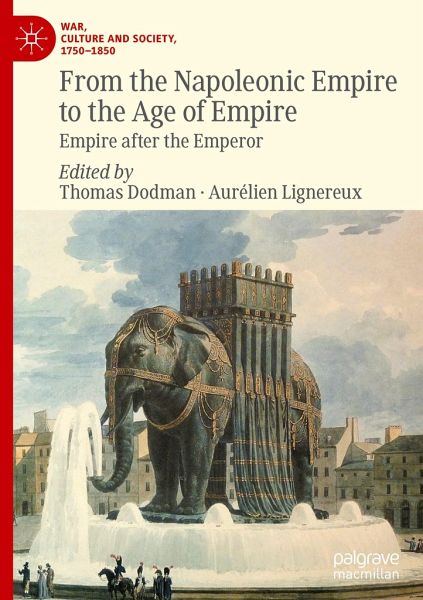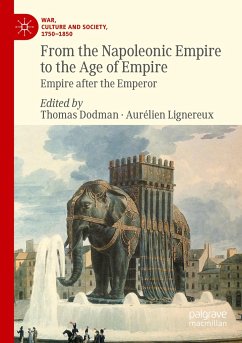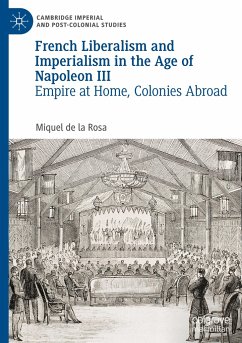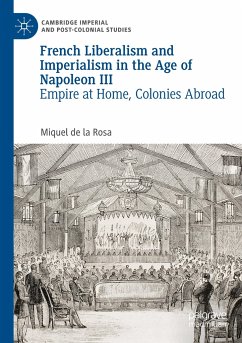
From the Napoleonic Empire to the Age of Empire
Empire after the Emperor
Herausgegeben: Dodman, Thomas; Lignereux, Aurélien

PAYBACK Punkte
57 °P sammeln!
This book explores imperial entanglements to reassess the Napoleonic Empire as a missing link-or at least an important chain-in the global and longue durée history of Empires. In recent years Napoleonic studies have, belatedly but resolutely, embraced the transnational historiographical turn, vastly expanding the field's geographical scope. Its canonical chronological boundaries, on the other hand, appear increasingly narrow against this wider backdrop, giving the impression of a parenthetical, almost anachronistic aside from 1799 to 1815. What connects, and what doesn't connect, the Napoleon...
This book explores imperial entanglements to reassess the Napoleonic Empire as a missing link-or at least an important chain-in the global and longue durée history of Empires. In recent years Napoleonic studies have, belatedly but resolutely, embraced the transnational historiographical turn, vastly expanding the field's geographical scope. Its canonical chronological boundaries, on the other hand, appear increasingly narrow against this wider backdrop, giving the impression of a parenthetical, almost anachronistic aside from 1799 to 1815. What connects, and what doesn't connect, the Napoleonic Empire to the Age of Empire, remains by and large an open question. Put another way, this book attempts to locate the Napoleonic empire in World History.














